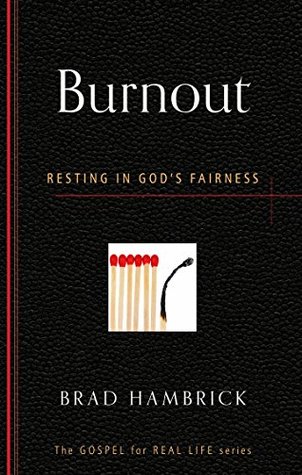Kindle Notes & Highlights
Read between
June 30 - July 1, 2025
burnout is the result of living beyond our means with the time God has provided.
Part of submitting to God’s lordship over our life is to live within the limitations with which he created us.
“A home should be clean enough to be healthy and messy enough to be happy.”
Fear. This is burnout built on the prefix “What if . . . ?” If your life is driven into the ground by trying to brace against an endless stream of hypothetical situations that are limited only by the creativity of your pessimistic imagination, then burnout will be the only periodic relief you experience from your “normal” life of fear.
Fear can result in being overprotective or overachieving, but a life ruled by fear is not sustainable and will inevitably result in burnout. Unless we begin to trust (the verb-form opposite of fear) God, we will not experience peace or rest (the noun-form opposites of fear). Without trust in God, life becomes an endless cycle of burnout (usually called depression in this cycle), in which our body recuperates and prepares for another round of fear-living.
Start the day in relaxed dependence. This is merely a new description for “quiet time” or “personal devotions.” This description focuses on the state of being (relaxed dependence) rather than the activity (reading, praying, or journaling). Both the state of being and activity are essential. For those struggling with burnout the temptation can be to make your time with God one more self-improvement activity, rather than a place of refuge and time of rest.
Don’t use food or substance to escape. Using food or alcohol to escape stress is like drinking salt water to quench thirst. There is short-term relief, but the problem is actually made much worse.
If you are helping someone whom you fear is on the brink of burnout, you can ask the following questions to discern whether your concern is valid: • Are you “all there” when you are with your family? • Do you use your schedule as an excuse for bad eating and sleeping habits? • Does your devotional time feel rushed, like a checklist item, or get neglected? • What are your most restorative activities and when do you engage in them? • When I ask how you’re doing, why do you tell me what you’re doing? • What is your prevailing mood, feeling, or disposition?
Just as the new covenant fulfills the old, it also serves as a picture of what a healthy life without burnout looks like. The old activities are liberated from their futility and slavish demands by the finished work of Christ on the cross. We serve as a response to God’s acceptance, rather than trying to gain God’s acceptance. We realize that we are not capable or expected to do what only God can do for others in Christ. We accept that our service is only part of God’s sovereign ministry to the world around us, and therefore we begin to serve in the freedom which that allows (both emotional
...more


